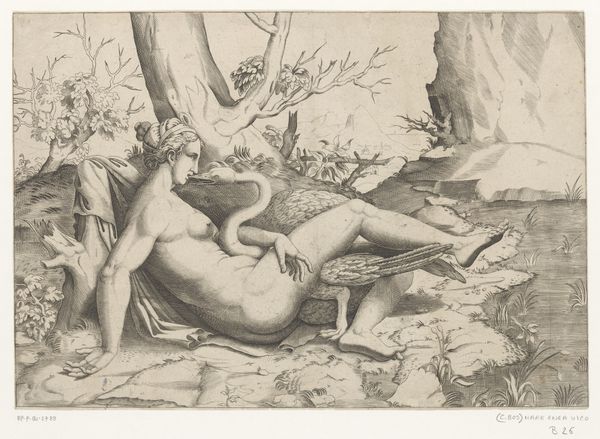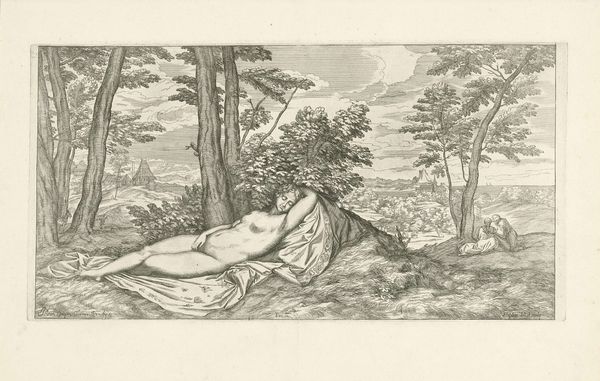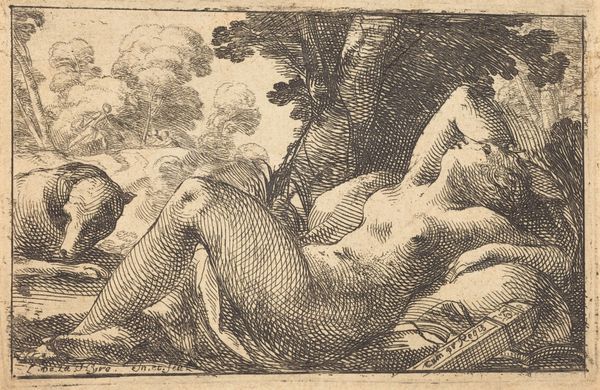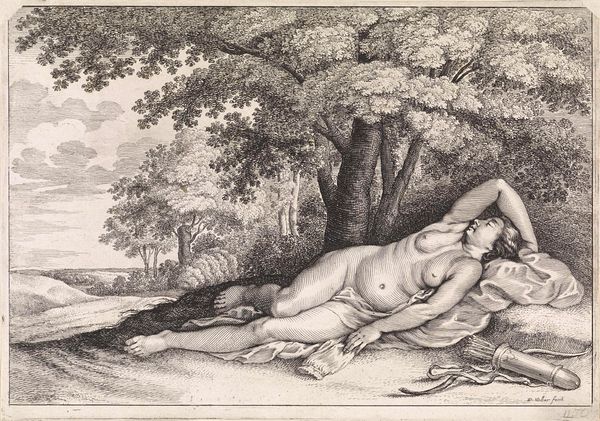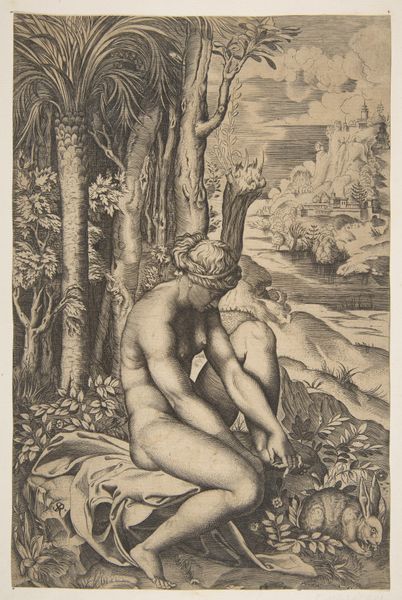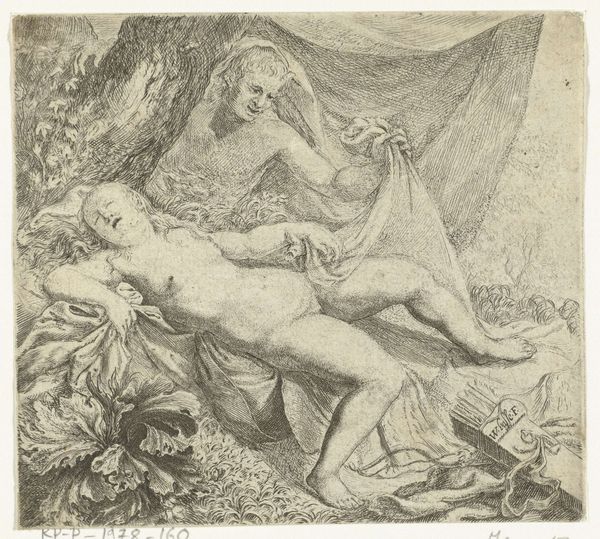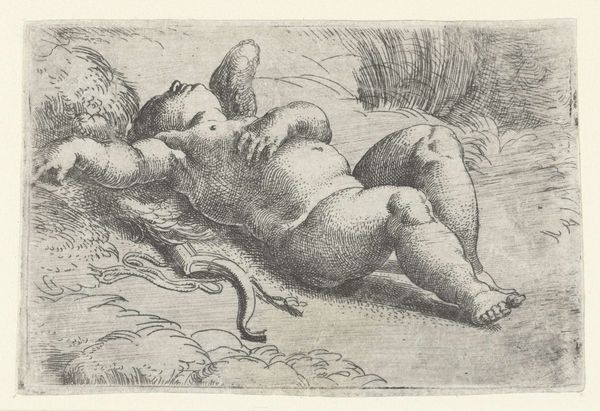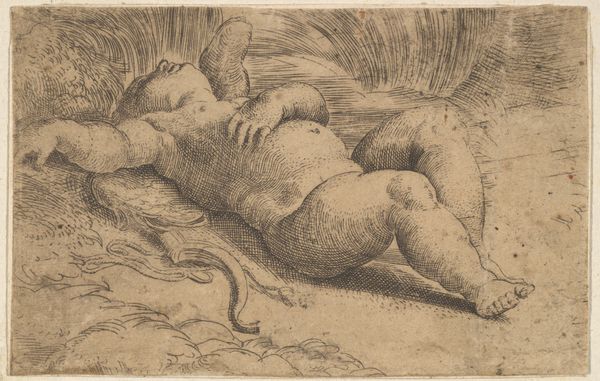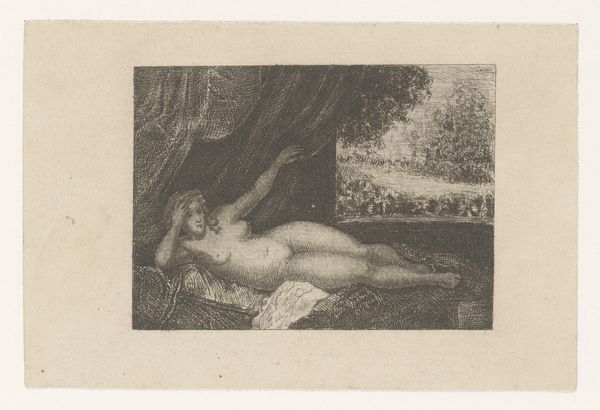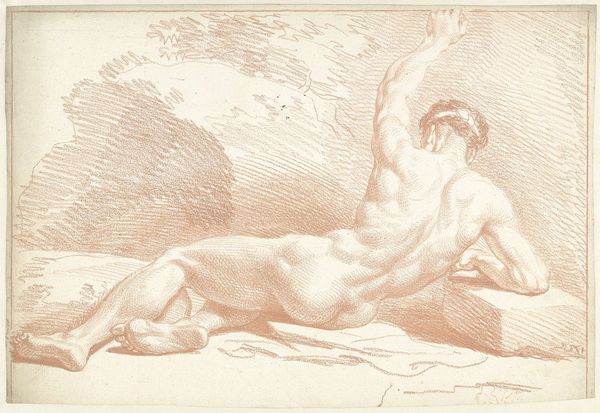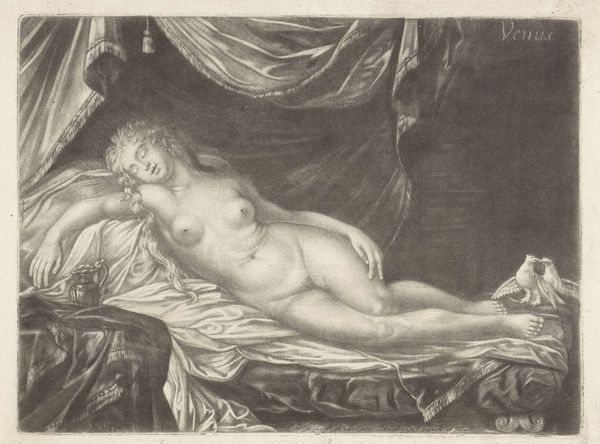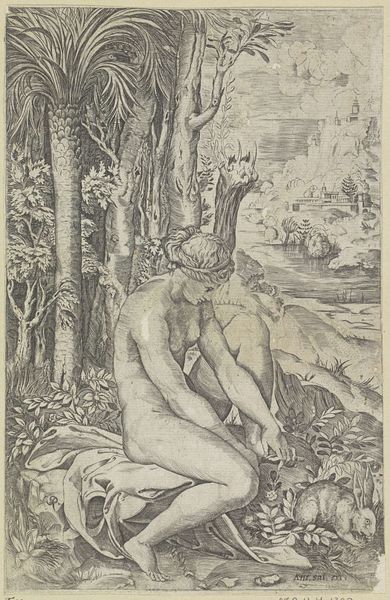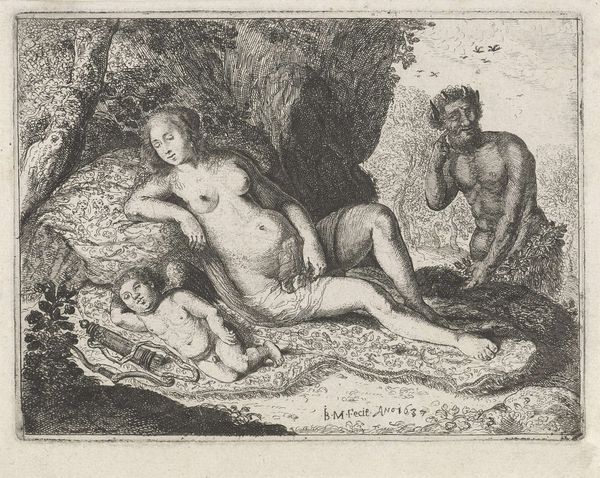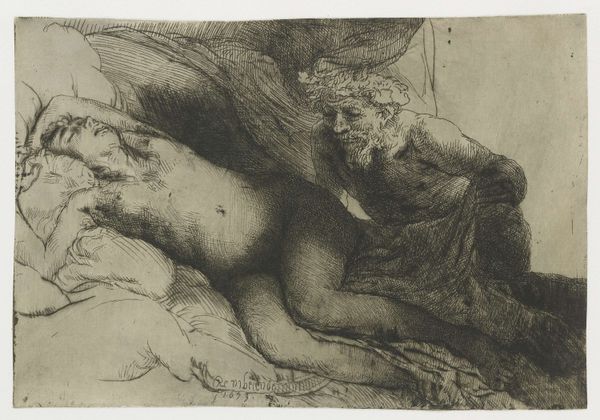
engraving
#
baroque
#
landscape
#
caricature
#
history-painting
#
nude
#
engraving
Dimensions: height 113 mm, width 154 mm
Copyright: Rijks Museum: Open Domain
Jan van Neck made this etching of Sleeping Diana in a landscape sometime between 1655 and 1714. Etching is an printmaking technique, which relies on the corrosive effect of acid to create an image on a metal plate. The plate would first be coated with a waxy, acid-resistant substance, into which the artist scratches their design. When the plate is immersed in acid, the exposed lines are eaten away, creating grooves. The plate is then inked, the surface wiped clean, and the ink held in the grooves is transferred to paper by strong pressure. Looking closely, you can see how van Neck varied his marks, using dense cross-hatching to create deep shadows. This process, though more direct than engraving, still requires careful planning and skillful execution. What we see is a confluence of technical expertise, artistic vision, and the inherent qualities of the materials used, resulting in a print that invites us to consider the intersection of process and representation.
Comments
No comments
Be the first to comment and join the conversation on the ultimate creative platform.
